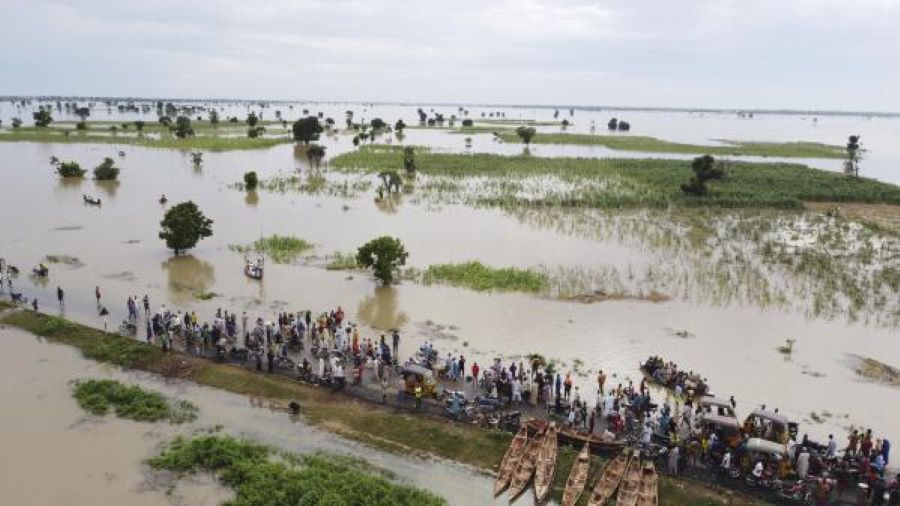According to Save the Children on Friday, nearly 950,000 people in West Africa have been displaced, and children’s education has been disrupted due to severe flooding at the beginning of the school year.
The NGO highlighted the challenges faced by hundreds of thousands of children who have been displaced from their homes, including the risk of disease and hunger due to crop destruction, as well as the disruption of their education as schools have become overcrowded with fleeing families or damaged by the floods.
Save the Children stated that approximately 950,000 people have been displaced, with 649,184 in Niger, 225,000 in Nigeria, and 73,778 in Mali.
Niger’s government reported that over 700,000 people have been left homeless, and 273 people have died since the onset of the rainy season in June.
In neighbouring Nigeria, 29 out of 36 states, mainly in the north, have been affected by rising waters from the River Niger and its major Benue tributary, resulting in 200 deaths, as reported by Save the Children.
According to data from the Nigerian government, the NGO also noted that over 115,265 hectares of farmland have been damaged, further exacerbating the country’s already high levels of food insecurity.

In Mali, where the government declared a state national disaster, it was revealed that more than half of the displaced individuals are children, according to Save the Children.
The international charity emphasised that climate change is leading to an increase in severe and frequent extreme weather events and their impacts, with Africa bearing a disproportionate brunt of this trend.
Vishna Shah-Little, the regional advocacy mediator, mentioned that these West African countries are already grappling with conflict and insecurity, complicating the response efforts.


